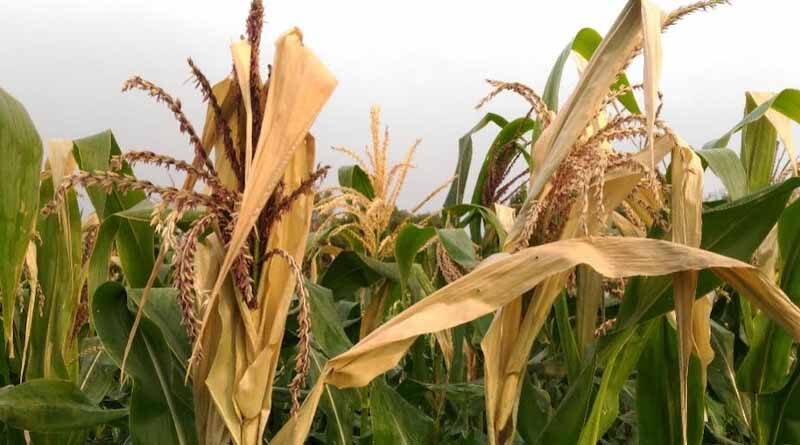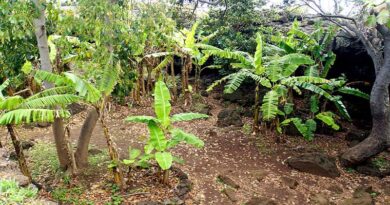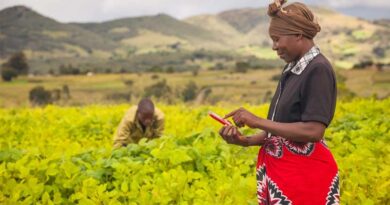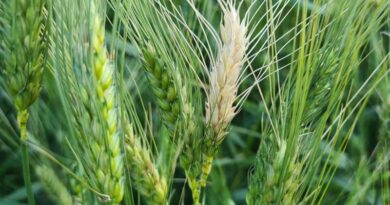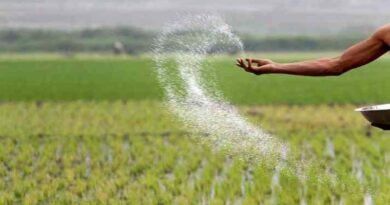Climate change and heat stress on crops poses a serious threat to agriculture. Can seaweed extracts help?
25 July 2022, US: Climate change and rising temperatures with associated consequences pose a serious threat to natural systems and socioeconomic well-being. The agricultural sector, in particular, is very sensitive to climate change. Even a small increase of 1° to 2°C can have significant negative effects on crop yields. Global economic losses in the production of three major crops (wheat, corn, and barley) attributed to climate change are estimated at approximately US$ 5 billion per year.
Climate change impacts agriculture and resulting changes in production patterns and prices affect both producers and consumers, changing the profitability of agricultural production and the share of income spent on food. If food prices increase because of climate change impacts, households not only will have to spend more income on food consumption but also could face a risk of nutritional shortage and insufficient access to food.
Due to the continuous rise of global temperatures and heatwaves worldwide, as a result of climate change, concerns around this topic are at an all-time high. Heat stress impairs the stability of cell membranes and many biological processes within plants. Whether in the presence or absence of adequate soil moisture, heat stress can be an important risk and/or limitation to plant growth and development. Crop yield is reduced by heat and water stress and even more when these conditions co-occur, impacting photosynthesis and reproduction.
A novel solution for managing heat stress in crops

An innovative agronomic tool that can be used as a strategy to counteract the detrimental effects of abiotic stresses, including heat stress, is biostimulants such as Acadian Plant Health’s seaweed extracts. “We have been able to study the effect of our seaweed extract, Ascophyllum nodosum, on plants experiencing heat stress. With our unique extraction process, we are able to liberate numerous bioactive compounds such as mannitol, polysaccharides, and betaines. These compounds have shown to improve plant tolerance to stressful growing conditions, including, but not limited to, heat stress and drought,” says Dr. Holly Little. “Mannitol is critical in protecting the cell water balance in stress situations to prevent cell water loss. Key polysaccharides elicit antioxidant production which keeps cell integrity and neutralizes free radicals. Proline production also strengthens cell wall membranes, protects key metabolic enzymes, and mediates water balance in stress situations to prevent cell water loss. And lastly, our seaweed extract contains natural betaines, while also eliciting betaine production. This again prevents cell water loss due to dry or salty environments and balances cell water content for great photosynthesis,” says Dr. Little.
In a study conducted by Acadian Plant Health™, three-week-old soybean plants were placed in a growth chamber set at 27°C for a 16-hour day length. Plants were treated with fertilizer alone vs. fertilizer plus Acadian Plant Health seaweed extract. In this video, you can see the temperature of the plants as they become exposed to heat and water stress.

The plants treated with Acadian Plant Health seaweed extracts were significantly cooler than the untreated plants. When plants are rewatered, a larger percentage of the leaves on the treated plant recover, and the plant is able to return to normal functioning – transpiring to cool leaf temperature much faster than the control.
“Drought alone causes more annual loss in crop yield than all pathogens combined. Add in heat stress and you have a major impact that is difficult to recover from,” says Dr. Little. “There continues to be a need to produce high-yielding plants that use water more efficiently than their present-day counterparts. The use of biostimulants like seaweed extracts could be an underutilized solution for the agricultural industry. Our research efforts will continue to be focused on uncovering the physiology of the plant response to our seaweed extract concerning climate-induced stressors such as heat and drought. To ensure food security we must deliver new strategies to combat scarcity.”
Also Read: Punjab government bans 10 agrochemicals to save basmati rice exports
(For Latest Agriculture News & Updates, follow Krishak Jagat on Google News)

